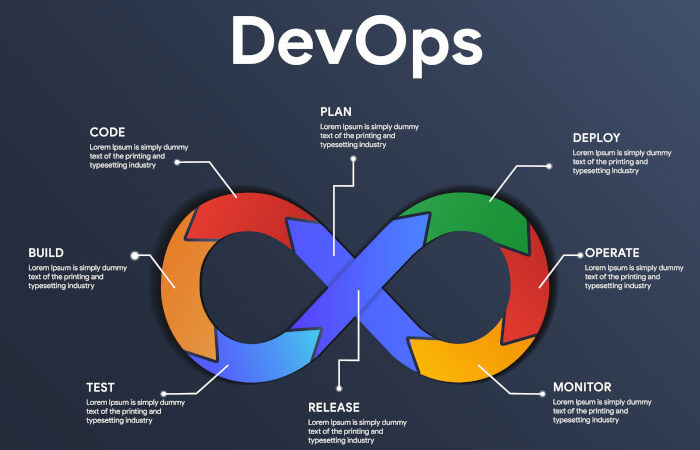Gradle is a build automation tool focused on flexibility and performance.
Gradle offers a flexible model that can support the entire development lifecycle from compiling and packaging code to publishing web sites. Gradle has been designed to support build automation across multiple languages and platforms including Java, Scala, Android, Kotlin, C/C++, and Groovy, and is closely integrated with development tools and continuous integration servers including Eclipse, IntelliJ, and Jenkins. Gradle build scripts are written using a Groovy or Kotlin DSL.
This is free and open source software.
Features include:
- High performance – only runs tasks that need to run because their inputs or outputs have changed.
- JVM foundation – runs on the JVM and you must have a Java Development Kit (JDK) installed to use it.
- Conventions – makes common types of projects — such as Java projects — easy to build by implementing conventions.
- Extensibility – extend Gradle to provide your own task types or even build model.
- IDE support – import Gradle builds and interact with them: Android Studio, IntelliJ IDEA, Eclipse, and NetBeans. Gradle also has support for generating the solution files required to load a project into Visual Studio.
- Insight – build scans provide extensive information about a build run that you can use to identify build issues.
- Incremental builds.
- Build caching.
- Incremental subtasks.
- Incremental annotation processing.
- Compiler daemon.
- Parallel execution.
- Parallel download of dependencies.
- Task timeouts.
- Web-based build visualization.
- Collaborative debugging.
- Extend and customise.
- Continuous build.
- Composite builds.
- Task exclusion.
- Dry run.
- Continue execution after failures.
- Fail fast test execution.
- Snyc dependency cache with repository.
Website: gradle.org
Support: GitHub Code Repository
Developer: Hans Dockter, Adam Murdoch, Szczepan Faber, Peter Niederwieser, Luke Daley, Rene Gröschke, Daz DeBoer, and contributors
License: Apache License 2.0
Gradle is written in Groovy and Java. Learn Groovy with our recommended free books and free tutorials. Learn Java with our recommended free books and free tutorials.
| Popular series | |
|---|---|
| The largest compilation of the best free and open source software in the universe. Each article is supplied with a legendary ratings chart helping you to make informed decisions. | |
| Hundreds of in-depth reviews offering our unbiased and expert opinion on software. We offer helpful and impartial information. | |
| The Big List of Active Linux Distros is a large compilation of actively developed Linux distributions. | |
| Replace proprietary software with open source alternatives: Google, Microsoft, Apple, Adobe, IBM, Autodesk, Oracle, Atlassian, Corel, Cisco, Intuit, and SAS. | |
| Awesome Free Linux Games Tools showcases a series of tools that making gaming on Linux a more pleasurable experience. This is a new series. | |
| Machine Learning explores practical applications of machine learning and deep learning from a Linux perspective. We've written reviews of more than 40 self-hosted apps. All are free and open source. | |
| New to Linux? Read our Linux for Starters series. We start right at the basics and teach you everything you need to know to get started with Linux. | |
| Alternatives to popular CLI tools showcases essential tools that are modern replacements for core Linux utilities. | |
| Essential Linux system tools focuses on small, indispensable utilities, useful for system administrators as well as regular users. | |
| Linux utilities to maximise your productivity. Small, indispensable tools, useful for anyone running a Linux machine. | |
| Surveys popular streaming services from a Linux perspective: Amazon Music Unlimited, Myuzi, Spotify, Deezer, Tidal. | |
| Saving Money with Linux looks at how you can reduce your energy bills running Linux. | |
| Home computers became commonplace in the 1980s. Emulate home computers including the Commodore 64, Amiga, Atari ST, ZX81, Amstrad CPC, and ZX Spectrum. | |
| Now and Then examines how promising open source software fared over the years. It can be a bumpy ride. | |
| Linux at Home looks at a range of home activities where Linux can play its part, making the most of our time at home, keeping active and engaged. | |
| Linux Candy reveals the lighter side of Linux. Have some fun and escape from the daily drudgery. | |
| Getting Started with Docker helps you master Docker, a set of platform as a service products that delivers software in packages called containers. | |
| Best Free Android Apps. We showcase free Android apps that are definitely worth downloading. There's a strict eligibility criteria for inclusion in this series. | |
| These best free books accelerate your learning of every programming language. Learn a new language today! | |
| These free tutorials offer the perfect tonic to our free programming books series. | |
| Linux Around The World showcases usergroups that are relevant to Linux enthusiasts. Great ways to meet up with fellow enthusiasts. | |
| Stars and Stripes is an occasional series looking at the impact of Linux in the USA. | |
